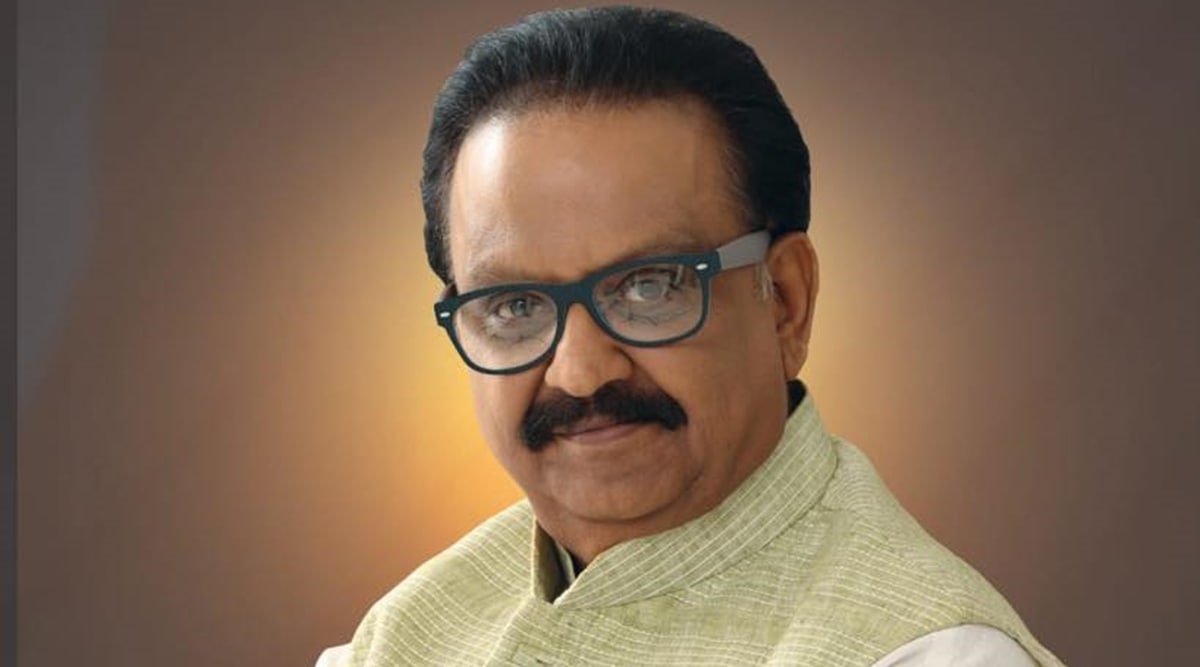 SP Balasubrahmanyam was tested positive for Covid-19 in the first week of August.
SP Balasubrahmanyam was tested positive for Covid-19 in the first week of August.Sripathi Panditaradhyula Balasubrahmanyam, the playback singer, composer, actor, producer and musician whose evocative voice and the earnestness in it could elevate a simple piece of music to sublimity, died on Friday of cardio-respiratory arrest at MGM Healthcare in Chennai. He was 74.
Balasubrahmanyam, fondly called SPB and Balu, was admitted to the hospital on August 5 after he tested positive for Covid-19. He was later shifted to the ICU after he developed severe pneumonia due to complications. Outside the hospital, an emotional S P Charan, his son, told reporters, “SPB belongs to everyone. He will live on in his songs”.
Widely believed to be one of the finest male playback singers, Balasubrahmanyam had a 50-year career and transcended language barriers by singing in 16 of them including Hindi, Telugu, Kannada, Malayalam and Tamil. He found success in the Hindi film industry. In South Indian film music there was more — a cult status and genuine affection from people. From MG Ramachandran (MGR), Sivaji Ganesan, Gemini Ganesan to Kamal Haasan, Rajinikanth, Mohan and a slew of actors in the present day, Balasubrahmanyam’s voice was often the fixture for all of them. That he held the Guinness World Record for singing the highest number of songs — 40,000 of them — was just another feather in his cap. In all of them, that tender, velvety voice triumphantly stood out as one of a kind — unpretentious yet grand. And that’s where the magic was.
Yet, his voice was turned down once. During the music making process of S Balachandar’s Rati Agnihotri and Kamal Haasan starrer Ek Duje ke Liye (1981) — a Hindi remake of the director’s Telugu film Maro Charitra — composers Laxmikant-Pyarelal were displeased. They felt that Balasubrahmanyam, the “Madrasi” singer they were asked to work with, could not correctly pronounce Anand Bakshi’s Hindustani lyrics. Balachandar’s condition was clear — Balasubrahmanyam was to sing for Haasan since Vasu, his character, was not supposed to be good at Hindi. The composer duo relented.
The songs in Balasubrahmanyam’s smooth baritone, many of which were duets with Lata Mangeshkar, captured the nation’s attention. He received the National Award for Best Male Playback Singer for ‘Tere mere beech mein’ in the pathos-driven raga Shivranjini.
Subsequently Balasubrahmanyam was cast as Salman Khan’s voice in Sooraj Barjatya’s Maine Pyaar Kiya (1989) by composers Ram Laxman. The voice fit Khan like a glove. The singer continued being Khan’s voice through the 1990s in Andaz Apna Apna (1994) and Hum Aapke Hain Kaun (1994) among others.
In a condolence message on Twitter, Haasan said, “A great singer who sang for four generations of heroes will be remembered for seven generations to come”, while Mangeshkar referred to him as “nek insaan” (good person).
Balasubrahmanyam was born in Konetammapeta village in Nellore, Andhra Pradesh, into a Telugu family to a Harikatha artiste and his wife. His interest in music began early. Bright in academics, Balasubrahmanyam wanted to become an engineer and took admission in Anantpur, Andhra Pradesh. While going to college on his cycle he would often hear Deewana huya baadal, the O P Nayyar ditty immortalised by Mohammad Rafi, in a shop. “I could hear Rafi sahab’s smile in that song. I would cry… it felt nearest to godliness,” Balasubrahmanyam said once in a conversation with singer Sonu Nigam on the sets of the show SaReGaMa.
In his early 20s, Balasubrahmanyam was the leader of a music group that had him as vocalist and his friend Illiyaraja on the harmonium. They would perform in villages and cities, take part in competitions and visit composers for work. Finally, Balasubrahmanyam made his singing debut in 1966 with Telugu movie Sri Sri Sri Maryada Ramanna, which was scored by his mentor S P Kodandapani. He was soon recording songs in Tamil and Kannada. His song Aayiram nilave vaa, picturised on MGR and J Jayalalitha in the 1969 film Adimai Penn, was a huge success.
But what made Balasubrahmanyam a force to reckon with was Sankarabharanam (1980), the Telugu musical drama that remains one of the finest films on classical music. Singer M Balamuralikrishna was the top choice for the complex Carnatic classical compositions. But composer K Mahadevan decided on Balasubrahmanyam, who eventually won his first National Award for the songs.
In the Tamil industry, he worked extensively with Illiyaraja, M S Viswanathan and later A R Rahman among others. The collaboration between Balasubrahmanyam and Rahman for the song Thanga Thamarai won him another National Award, his first for a Tamil song. There was also the title song of Roja where the two collaborated. The tender romanticism paired with powerful vocals is likely to remain one of the singer’s finest hours. Rahman posted just one word on Twitter today: “Devastated.”
Balasubrahmanyam was also a well-known dubbing artiste and dubbed for Haasan, Rajinikanth, Salman Khan, Anil Kapoor among others for Telugu versions of their films. He also acted in a few films.
In 1997, there was a rare live concert by Lata Mangeshkar titled “Lata An Era In An Evening”. It was televised and had every major name from the film industry present. For one of its segments, Mangeshkar invited Balasubrahmanyam to sing with her and said, “Inka upkaar rahega mujh par ki ye mere liye aaye (It’s his beneficence that he has come for me.” Balasubrahmanyam gave Mangeshkar a toothy smile and said, “Jab bhagwaan bulaate hai toh aana hi padta hai (When god calls, you have to show up),” before breaking into their famed pieces together.
Balasubrahmanyam is survived by wife Savithri, son S P Charan and daughter Pallavi.
📣 The Indian Express is now on Telegram. Click here to join our channel (@indianexpress) and stay updated with the latest headlines
For all the latest India News, download Indian Express App.